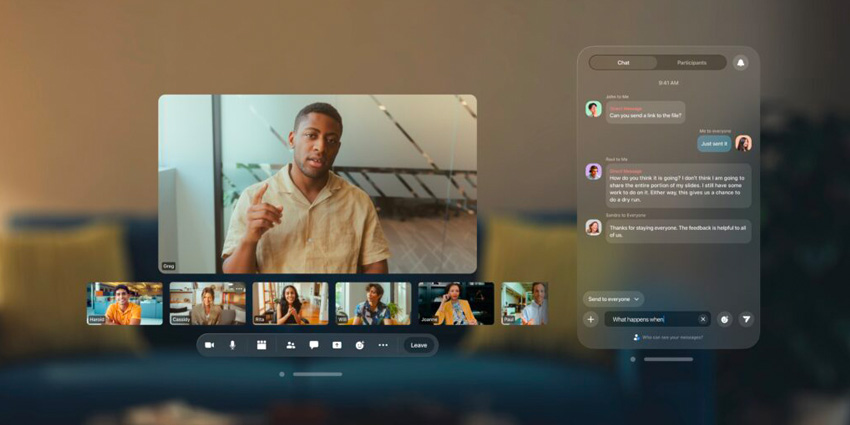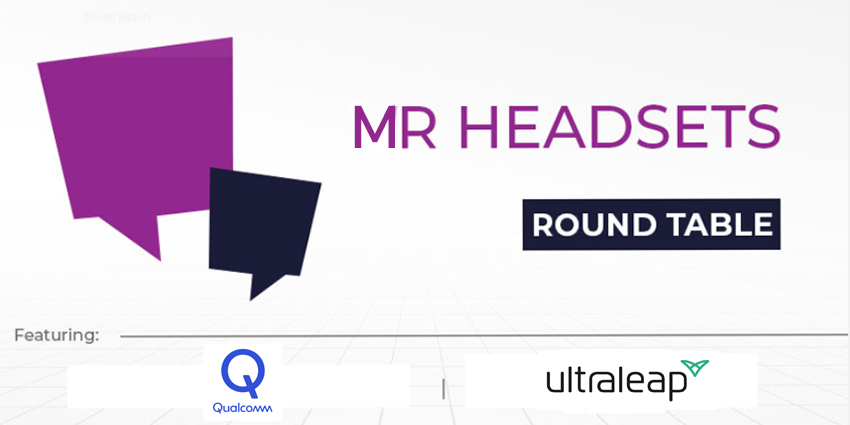February is already an eventful month for Meta; following its Q2 report last month, the immersive technology firm announced the closure of Crayta and Echo VR while exploring augmented reality (AR) wearable goals.
Last Wednesday, Meta-owned Metaverse platform Crayta, developed and operated by Unit 2, announced its closure effective March 3 2023.
Moreover, last week another Meta-owned VR gaming developer, Ready at Dawn, announced that its online multiplayer game Echo VR would shut down on August 1, 2023.
Despite the closure of its online Meta Quest applications, the Menlo Park-based firm confirmed its dedication to its elusive upcoming Project Nazare AR device.
Meta’s closures mirror Microsoft’s similar action last month, which saw the firm announce the shutting down of its Metaverse platform Altspace VR. Many of the platform’s team members are moving onto the development team behind Microsoft Mesh – an immersive collaboration platform.
Meta: Crayta to Close in March
Unit 2 launched Crayta in 2020 as a Metaverse platform which promoted user-generated content (UGC) and world-building.
After 2.5 years of fun and creativity, we’re sad to announce the closure of Crayta on all platforms, from 4pm GMT (8am PT) on Friday March 3rd 2023. Read our announcement & FAQs below.
Thank you, Craytans – we love you. ❤️
— Crayta 🎓🧟♀️ (@CraytaGame) February 1, 2023
Meta acquired the platform in June 2021, long before its rebranding from Facebook and Metaverse announcements.
The Crayta platform and Meta Horizon service share many similarities, from its focus on immersive UGC to online socialization. It is fair to assume that many of Crayta’s building blocks influenced the development of Horizon.
Horizon is less focused on gaming. Instead, the platform builds upon Crayta’s UGC and socialization elements allowing users to monetize their VR creations.
Moreover, with the closure of Crayta, Meta will continue to employ the firm for upcoming VR applications.
In a statement, Unit 2 outlined:
The studio still exists and we’re all still employed by Meta. We’ll share more soon about what we’re working on next.
Meta: Echo VR to Close In August
Meta’s Ready At Dawn developer studio also announced the closure of Echo VR and its sister applications, Echo Arena and Combat.
Before its August sunset, Ready at Dawn is providing its existing Echo VR user base with awards and giveaway events to thank fans for their loyalty across the service’s lifespan.
Good morning Echo Units. Here is the annual update for our amazing community. https://t.co/QY6xDYVJ6A
— Echo Games (@EchoGames) January 31, 2023
Ready at Dawn initially launched Echo VR on Quest in 2020. Now, the developers are dropping support of the title this year to focus on a new project with Meta.
The firm stated in its closing statements:
After many discussions internally and with our partners at Meta, we have made the difficult decision to shut down Echo VR. – By no means was this decision made lightly. But it was made for many good reasons and chief among them is the studio coming together to focus on our next project. We can’t say anything about it yet, but we are all excited and need all hands on deck.
Moreover, last week, Meta’s CTO, Andrew Bosworth, addressed the closure of Echo VR, adding that the service’s closure came due to a dwindling player base.
Bosworth also noted that the issue is unrelated to return on investment (ROI). Instead, Meta wishes to put Ready at Dawn’s resources to work on other VR projects.
According to the CTO, by reallocating Ready at Dawn’s resources, Meta can focus on providing system-selling software which drives device adoption.
Bosworth added:
We [Meta] want the Ready at Dawn team to be continued to be focused on these other projects that we’re excited about, that I think are gonna have a bigger impact on a bigger number of people on driving more adoption.
More adoption means more developers. More developers means content for all of you to use. This is one of those things where I’m trying to take a long view, but we did look at other options and none of them really made sense for this.
Boosting Device Adoption with Immersive Software
Bosworth’s comments come after Meta Reality Labs once again recorded revenue losses following its Q2 earnings report. Bosworth’s comments on increasing user adoption via immersive software could reflect an urge to match Quest 2’s booming success with follow-up models.
Moreover, Meta decreased the price point of its Quest Pro headset by £400 last month. The Menlo Park-based firm may be cautiously approaching the next few months as active competition from mixed reality (MR) headset vendors like Pico and HTC VIVE creeps up.
On the other hand, Meta may keep its Quest Pro device for enterprise and education end-use cases over consumer/gaming use cases.
Late last year, Meta doubled down on promoting its Quest Pro device as an enterprise solution. The firm believes its XR product portfolio can help business clients understand the future of remote work.
Although Meta appears to focus on enterprise clients for its Quest Pro model, it is apparently working on new consumer-grade devices.
Driving Consumer Adoption of the Meta Quest 3
Just months after the introduction of the Meta Quest Pro, rumours quickly began swirling concerning a Meta Quest 3 device.
During an earnings call last Wednesday, Mark Zuckerberg, Meta’s CEO and Founder, announced that his firm would debut a new Meta Quest product in 2023.
According to Zuckerberg, the new device will cost around $300 to $500, much lower than the Quest Pro’s $1,499 launch price.
The Quest 3 will also be an MR headset, like the Pro model, and Zuckerberg stated that the third iteration would be a “next-generation” consumer headset.
Additionally, Zuckerberg expects the device will “establish this technology as the baseline for all headsets [and] for AR glasses as well.”
If the Quest 3 is merely around the corner as a cheap consumer-focused MR headset option, the device will need system-selling software and hardware to match the success of the Meta Quest 2. Moreover, without system-selling features, Meta Quest 2 owners may not feel the need to upgrade.
The issue of convincing a user base to upgrade their immersive devices is also a challenge Microsoft faces with its Hololens 3 headset.
In a blog post, Microsoft’s Vice President of MR, Scott Evans, noted that new headset iterations must come when the technology is ready.
Evans also added:
No one wants to be obsoleted for 10% better capabilities. They don’t need a successor yet, but they want to know it will be there at the right time.
Meta Updates the Status of Project Nazare
Further adding to Meta’s seemingly apparent goal of boosting consumer-grade XR device adoption are the firm’s recent comments regarding upcoming AR wearables.
The Menlo Park-based firm is reportedly investing heavily in its Project Nazare AR headset. According to reports, Zuckerberg believes highly in the project, once calling the device a “holy grail.”
Meta is attempting to complete the device ready for a 2026 release date. Although according to Meta’s Head of AR Glasses Hardware, Caitlin Kalinowski, the device still needs to overcome various technical hurdles before the Nazare device is ready for public adoption.
Meta’s AR device contains six new technologies, which Kalinowski calls new technology introductions (NTIs), which the firm wishes to perfect before release.
The Nazare NTIs present problems for Meta’s AR division due to the limited availability of components says Kalinowski – an issue not faced for VR headset development due to its cross-over with smartphone tech.
Kalinowski added:
On the AR side, each NTI needs to be solved before we can even think about shipping. So the biggest difference right now is that we’re in a different phase of product development. VR is a lot further along than AR, but eventually AR will catch up.
The Meta department does not foresee AR devices overtaking VR products either, noting that the technology space is divergent and presenting different use cases.
Kalinowski said that consumers will use AR “for most of the things that you currently use your phone for.”
What’s In-Store for Meta in 2023?
Despite its reshuffle in 2023 and Meta’s current legal proceedings, which sees the FTC accuse the Menlo Park-based firm of anti-competitive actions, Reality Labs and its project leaders are optimistic that existing software and hardware investments will win the favour of immersive audiences.
With increasing competition from upcoming VR/MR products like the PICO 4, HTC VIVE XR Elite, and Apple’s rumoured device mixed with AR smart glasses competition from the likes of Nreal, Vuzix, and Qualcomm, Meta will need to successfully convince fans to remain loyal amidst increasing affordable and diverse options.
If current reallocated developer teams can produce system-selling applications, whether Metaverse, gaming, or enterprise-focused, Meta can regain its audience’s favour and continue its market dominance following a tough 2022.







